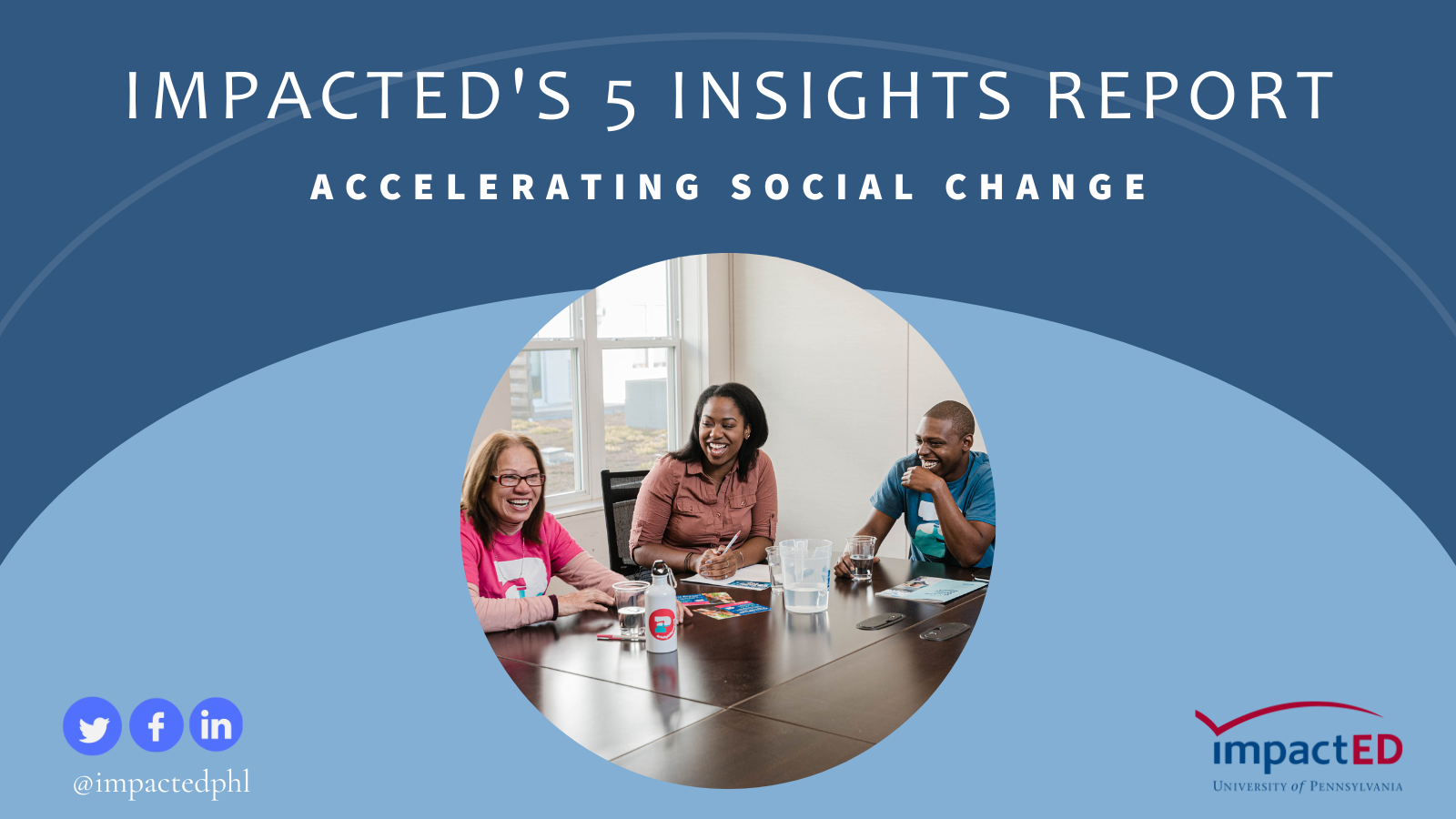
“Ultimately, we’ve learned that creating sustainable change requires setting a clear vision of who you serve and the impact you are working to achieve. It means using insights to inform continuous improvement across every aspect of your work. And it requires developing an organizational culture that supports learning and growth.”
Claire Robertson-Kraft
ImpactED Executive Director
As we reflect on five years of partnership with 100+ social change organizations at ImpactED, we are taking a moment to look both backward and forward. Over the last five years, we have watched our partners take courageous steps in the face of uncertainty and crisis. They responded to an immediate—and growing—need among the communities they serve while also launching new innovations to address deep-seated inequities.
We recently sat down with several of our partners to hear their reflections on their work and how they’re thinking about the future of social change. Our new report, 5 Insights for Accelerating Social Change, highlights the five common insights that emerged from these conversations.
- Expanding The Focus: Social change agents are expanding their focus beyond direct service to work towards systemic change. Many of our partners are responding to shifting community needs by focusing on systemic issues—whether that’s providing more holistic types of support or exploring the structural inequities leading to differential outcomes. For example, Philabundance developed a bold new strategy Ending Hunger For Good to disrupt the cycle of spending tradeoffs between food and other necessities that perpetuate food insecurity.
- Cultivating Connections: Social change agents are cultivating connections to achieve greater impact. To better serve their communities, we have seen organizations develop strategic partnerships both within and across sectors. Just last month, two of our partners and landmark education nonprofits—Philadelphia Futures and Steppingstone Scholars—officially merged and created a new organization, Heights Philadelphia, which will serve more than 3,000 students across the city.
- Generating Actionable Insights: Social change agents are generating actionable insights to respond to their communities’ shifting needs and goals. While organizations have always recognized the value of nimbly responding to community needs, we have seen our partners ask how their strategy and evaluation practices can be revised to generate more meaningful—and actionable—data. For example, the Opera Philadelphia Community Initiatives team has used real-time data to modify their approach prior to the launch of each new program cohort.
- Centering Community: Social change agents are centering community perspectives in decision-making and planning processes. Many organizations are focused on building authentic relationships and more meaningfully engaging with the individuals and communities they serve. For example, we partnered with AFAHO to understand - and address - the root causes of vaccine hesitancy in African and Caribbean immigrants and refugees (ACIRs) through a peer-to-peer campaign that turned trusted community members into vaccine ambassadors.
- Trusting The Process: Social change agents are staying focused on their purposes while trusting the dynamic and sometimes uncertain process of change. We heard from our partners that the process of learning is as important as the outcome. Over the last five years, we have helped 84 nonprofits build organizations that center learning and growth, graduating our most recent cohort last Fall.
To kick off 2023, we will be sharing additional examples and actionable strategies for a new insight each month of the new year. If your organization is wrestling with similar issues and interested in partnering with ImpactED, please reach out to us at impact-ed@sas.upenn.edu.



